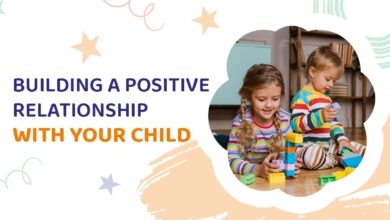Cultural Significance of Music – How Music Shapes Identity and Community

Music has been an integral part of human culture for thousands of years. It transcends borders and languages, serving as a universal form of expression that conects people across different backgrounds. From ancient rituals to modern concerts, music plays a vital role in shaping our societies and personal identities. The cultural significance of music is profound, as it not only entertains but also educates, heals, and unites communities.
Below, we will explore how music shapes identity and community through six key points.
Music as a Reflection of Cultural Heritage
Music is a powerful vehicle for preserving and promoting cultural heritage. Each culture has its unique musical traditions that convey stories, values, and histories passed down through generations. These traditions help maintain a community’s cultural identity and keep its heritage alive. For example, traditional African drumming, Native American chants, and Irish folk music each tell unique stories about the cultures they originate from.
The preservation of these musical traditions is crucial for maintaining cultural diversity. As globalization continues to bring different cultures into closer contact, the risk of losing unique cultural expressions increases. Music festivals, cultural events, and educational programs focused on traditional music play a vital role in preservation efforts, highlighting the enduring importance of music in cultural heritage.
Learning Music and Personal Identity
Music education plays a crucial role in personal development. Learning to play an instrument or sing can help individuals build confidence, discipline, and a sense of achievement. It allows for creative expression and can be a powerful tool for self-discovery. At Muzart Music and Art School, which has been dedicated to providing top-quality instruction in the arts since 2010, students of all ages are encouraged to explore their musical talents. This institution emphasizes the importance of nurturing creativity and fostering a love for the arts.
Learning music at this school helps individuals build confidence and express themselves creatively. The skills gained through music education extend beyond the ability to play an instrument or read music; they include enhanced cognitive abilities, improved social skills, and greater emotional resilience. These benefits contribute significantly to an individual’s sense of identity and personal growth, demonstrating how foundational music education can be in shaping who we are.
Music and Social Cohesion
Music has a remarkable ability to bring people together, fostering a sense of community and shared experience. Social gatherings, festivals, and community events often center around music, providing opportunities for people to connect and bond. Whether it’s a local concert, a religious ceremony, or a cultural festival, music serves as a common thread that unites individuals, creating a sense of belonging and togetherness.
The role of music in social cohesion is evident in various contexts. For instance, national anthems evoke a sense of patriotism and unity among citizens, while protest songs can rally individuals around a common cause. Community choirs, bands, and dance groups also illustrate how music fosters collaboration and teamwork. These collective musical experiences strengthen social bonds and contribute to a supportive and cohesive community, underscoring the importance of music in our social lives.
Music and Emotional Expression
Music is a powerful medium for emotional expression. It allows individuals to convey feelings and experiences that might be difficult to articulate with words. Listening to or performing music can help people process emotions, find solace, and express their inner thoughts. This therapeutic aspect of music is well-documented, with many studies highlighting its benefits for mental health. Music therapy, for instance, is used to help individuals manage stress, anxiety, and depression by providing an outlet for emotional release and reflection.
Different genres and styles of music can evoke a wide range of emotions. Classical music might soothe and calm the mind, while upbeat pop songs can uplift and energize. The lyrics of a song can resonate deeply with listeners, providing comfort or sparking introspection. This emotional connection to music underscores its importance in our daily lives, as it offers a unique way to understand and express our feelings. Whether through listening, composing, or performing, music provides a valuable means of emotional expression and well-being.
Music and Generational Connection
Music serves as a bridge between generations, connecting people of different ages through shared musical experiences. Many families have musical traditions that are passed down from one generation to the next, creating a sense of continuity and shared history. Songs that parents or grandparents enjoyed can be introduced to younger family members, fostering a sense of nostalgia and bonding. These shared experiences help strengthen family ties and create lasting memories.
Generational connections through music are not limited to families. Communities often come together around musical events that appeal to a wide age range, such as concerts, festivals, or community dances. These events provide opportunities for different generations to interact and learn from each other, promoting mutual respect and understanding. Traditional songs and contemporary music can resonate across age groups, highlighting the universal nature of music and its ability to connect people through shared cultural experiences.
Music and Identity Formation
Music plays a crucial role in shaping both personal and group identities. Individual musical preferences often reflect aspects of one’s personality, values, and experiences. People use music to express who they are, whether through the genres they enjoy or the songs they relate to. For many, music becomes a significant part of their identity, influencing their sense of self and how others perceive them.
On a broader scale, music can also shape group identities. Musical genres and subcultures often form around shared tastes and values, creating communities of like-minded individuals. For example, fans of a particular band or genre may form tight-knit groups that share a collective identity. These musical communities provide a sense of belonging and solidarity, reinforcing group cohesion and identity. Through both personal and collective experiences, music significantly influences how we define ourselves and connect with others.
Conclusion
Music profoundly shapes our identities and communities through its multifaceted roles in education, cultural preservation, social cohesion, emotional expression, generational connection, and identity formation. Learning music helps individuals develop personally and creatively. Music reflects and preserves cultural heritage, fosters social bonds, allows for emotional expression, connects generations, and shapes personal and group identities. The cultural significance of music is undeniable, making it a vital aspect of human experience and society.



